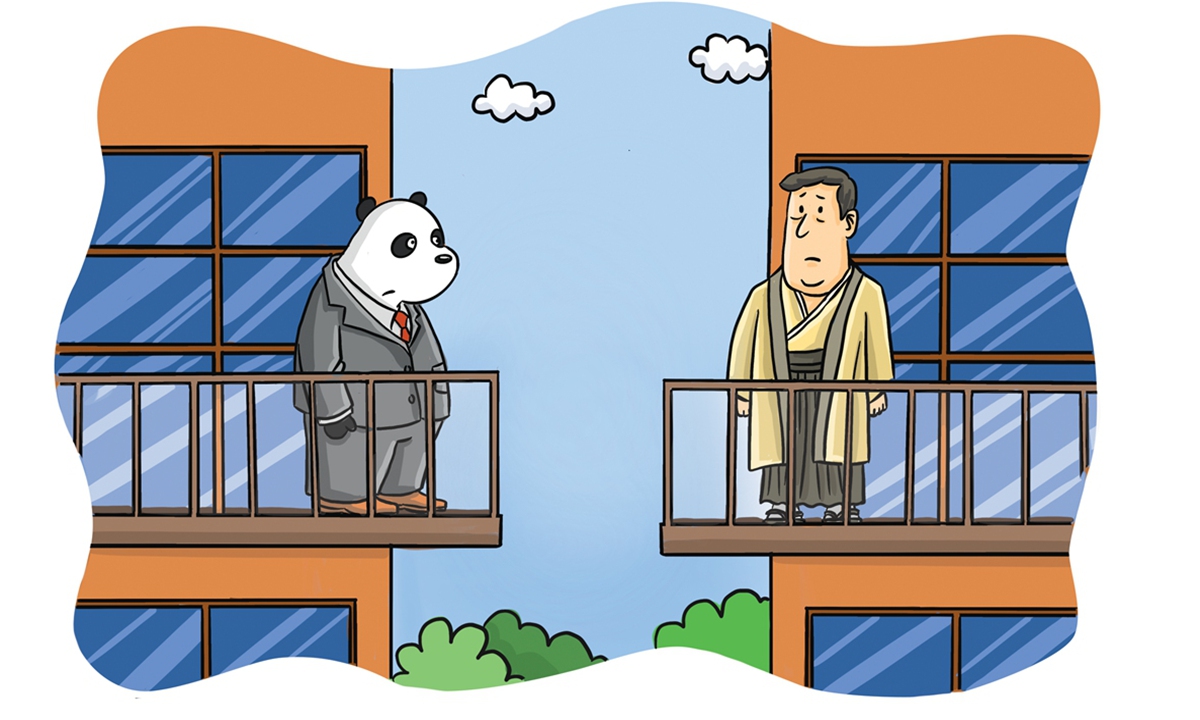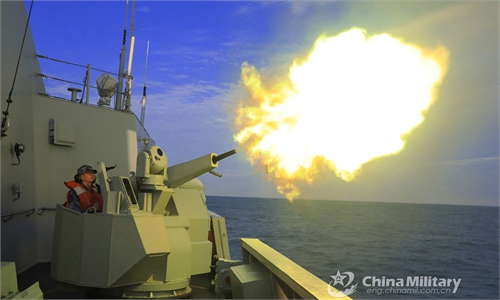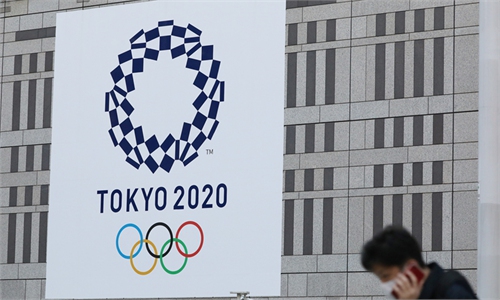
Illustration: Xia Qing/GT
Japan has recently changed course. Regardless of the fact that China-Japan relations had entered a phase of normalization and there was a momentum for the two countries to jointly promote regional cooperation in Northeast Asia into a new level, Tokyo has continuously hyped the "China threat" theory along with the US and some other Western countries.
In April, Japan and the US released a joint statement after a summit between Japan's Prime Minister Yoshihide Suga and US President Joe Biden. This was the first time in more than five decades they referred to the island of Taiwan in a joint statement. Earlier in May, Japan has hyped up China's so-called human rights problems together with other G7 countries. According to the NHK Thursday, Japan's draft defense white paper for 2021 stresses the need for close monitoring of US and Chinese military operations regarding the Taiwan island and elsewhere. This collective move seems to indicate to China that Japan presently views the former as a geopolitical rival - not a neighbor and trade partner that it can develop friendly exchanges with.
This shift demonstrates the fact that Japan has failed to position China in its foreign policy in line with the times, mistakenly thinking it can get increasingly tough on China.
To begin with, Japan's views of China are full arrogant streaks of superiority. For many years, Japan has considered itself an economic leader of Asia. It carried out exchanges with China from an egocentric perspective, viewing China as a dumping destination of industrial products, source of resources and raw materials, and a market that it can exploit. This determines that Japan cannot accept and feel at ease psychologically with China's rise. The country's views of China cannot be adjusted according to the changes of times.
Second, Japan's positioning toward China involves dual dimensions. For one, Tokyo intends to have more economic gains by trading with China. For another, Japan is wary of and even hopes to contain China. Yet in recent years, Tokyo tends to lose its balance between the two aspects.
It seems to increasingly disregard its own economic interests and show a tougher stance toward China. Instead of making more efforts to get along with its neighboring countries, Japan puts more geopolitical pressure on these countries. Furthermore, negative sentiments toward China have spread across the Japanese society. These factors drive Japan from making objective and rational judgments when dealing with China. Against this backdrop, Tokyo will not achieve mutually beneficial results with Beijing.
Third, Japan has the illusion that the US and Europe will endorse its China policy. Japan has tasted blood by resting on foreign forces in history. In this context, Tokyo tends to exploit outside forces to achieve its goals. These range from Anglo-Japanese alliance at the beginning of 20th century, to Japan-US alliance since middle of the 20th century, and to Japan enhancing its relations with Europe and US.
Indeed, Japan has obtained considerable benefits from exploiting external forces in terms of dealing with China. And now Tokyo has somewhat seen its desire come true as the US and its allies are meddling with the Indo-Pacific region to contain China. Japan has attempted to play a bigger role in the Quadrilateral Security Dialogue, an informal security grouping of the US, Japan, Australia and India. Besides, there are reports that Japan has showed its interest to become another member of the Five Eyes intelligence-sharing alliance. Japan can hardly conceal its attempts to disrupt China's modernization process by exploiting Europe and the US.
No matter what policy toward China that Japan needs to adopt from now on, it clearly requires Tokyo to free itself from shackles of outdated ideas. This includes its sense of superiority and containment posture. Japan needs to take stock of the situation and see the unstoppable rise of China. It should comprehensively and thoroughly recognize a mutually beneficial reality: Beijing and Tokyo are neighbors that need each other.
Once we have understood such a general background and the current trend between the two countries, it is easy to say that Japan's positioning on China can be clearer rather than complicated. It is hoped that the Japanese government will respond to the appeals for friendly relations between the two countries. It is also hoped that Tokyo will correct its thoughts about containing and even excluding rivals. The cooperation between China and Japan can promote a sense of connectivity in the region. Therefore, it can accelerate regional integration in East Asia and the Asia-Pacific region, and push regional prosperity to a higher level.
The author is director of the Institute of Northeast Asian Studies at Heilongjiang Provincial Academy of Social Sciences. opinion@globaltimes.com.cn


